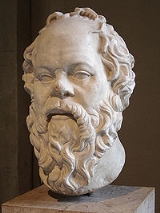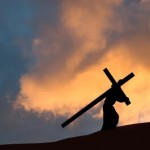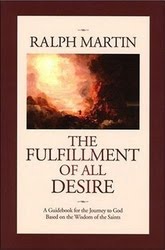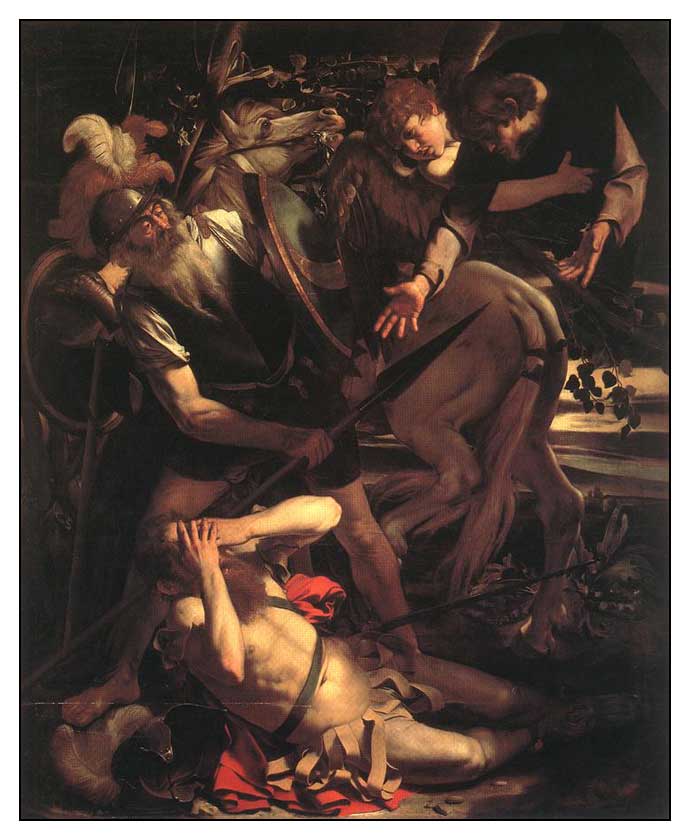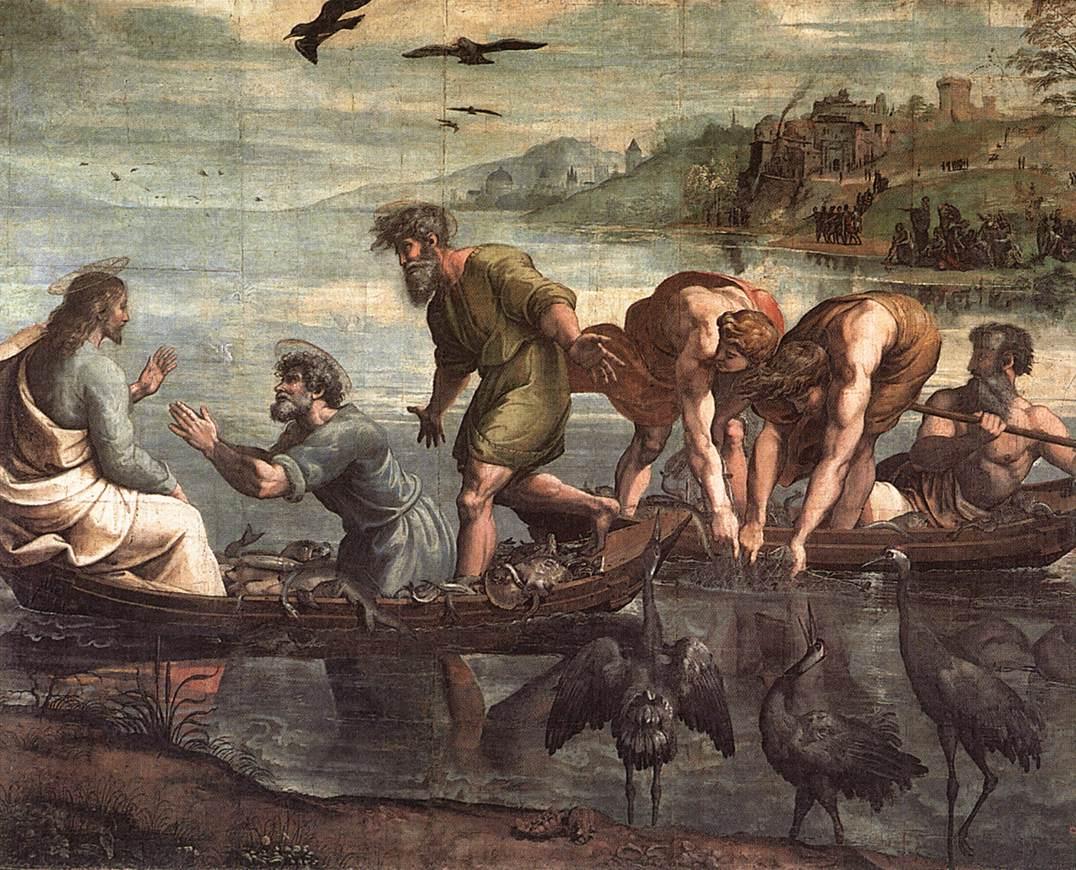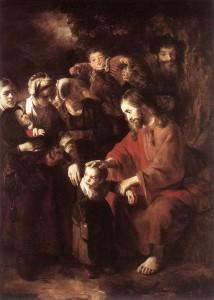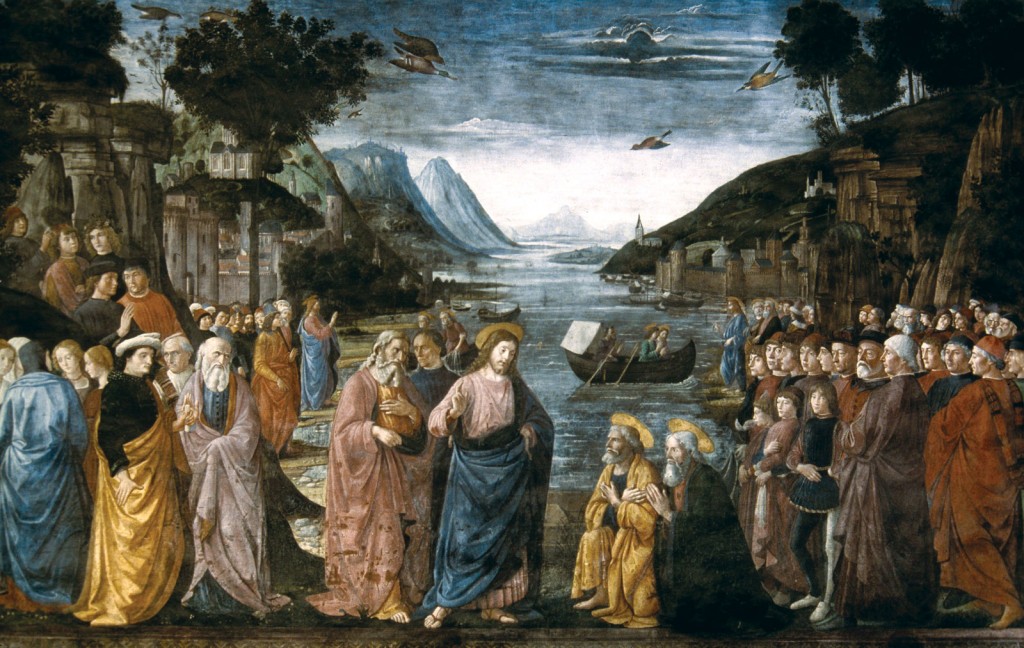From Vatican.va (the extended version translated into English from the Italian)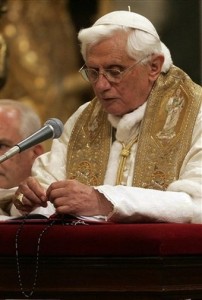
GENERAL AUDIENCE
(the fuller catechesis translated into English from the Italian text)
Piazza San Pietro
Wednesday, May 11, 2011
Dear brothers and sisters,
Today I wish to continue my reflection on how prayer and the sense of religion have been part of man throughout his history.
We live in an age in which the signs of secularism are glaringly obvious. God seems to have disappeared from the horizon of some people or to have become a reality that meets with indifference. Yet at the same time we see many signs of a reawakening of the religious sense, a rediscovery of the importance of God to the human being’s life, a need for spirituality, for going beyond a purely horizontal and materialistic vision of human life.
A look at recent history reveals the failure of the predictions of those who, in the age of the Enlightenment, foretold the disappearance of religions and who exalted absolute reason, detached from faith, a reason that was to dispel the shadows of religious dogmatism and was to dissolve the “world of the sacredâ€, restoring to the human being freedom, dignity and autonomy from God. The experience of the past century, with the tragedy of the two World Wars, disrupted the progress that autonomous reason, man without God, seemed to have been able to guarantee.
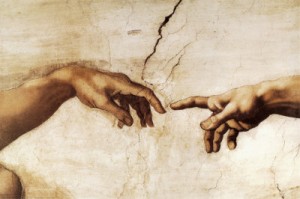 The Catechism of the Catholic Church says: “In the act of creation, God calls every being from nothingness into existence…. Even after losing through his sin his likeness to God, man remains an image of his Creator, and retains the desire for the one who calls him into existence. All religions bear witness to man’s essential search for God†(n. 2566). We could say — as I explained in my last Catecheses — that there has been no great civilization, from the most distant epoch to our day, which has not been religious.
The Catechism of the Catholic Church says: “In the act of creation, God calls every being from nothingness into existence…. Even after losing through his sin his likeness to God, man remains an image of his Creator, and retains the desire for the one who calls him into existence. All religions bear witness to man’s essential search for God†(n. 2566). We could say — as I explained in my last Catecheses — that there has been no great civilization, from the most distant epoch to our day, which has not been religious.
Man is religious by nature, he is homo religiosus just as he is homo sapiens and homo faber: “The desire for God†the Catechism says further, “is written in the human heart, because man is created by God and for God†(n. 27). The image of the Creator is impressed on his being and he feels the need to find light to give a response to the questions that concern the deep sense of reality; a response that he cannot find in himself, in progress, in empirical science.
The homo religiosus does not only appear in the sphere of antiquity, he passes through the whole of human history. In this regard, the rich terrain of human experience has seen the religious sense develop in various forms, in the attempt to respond to the desire for fullness and happiness. The “digital†man, like the cave man, seeks in the religious experience ways to overcome his finiteness and to guarantee his precarious adventure on earth. Moreover, life without a transcendent horizon would not have its full meaning and happiness, for which we all seek, is spontaneously projected towards the future in a tomorrow that has yet to come.
 In the Declaration Nostra Aetate the Second Vatican Council stressed in summary form: “Men look to their different religions for an answer to the unsolved riddles of human existence. The problems that weigh heavily on the hearts of men are the same today as in the ages past. What is man? — [who am I?] — What is the meaning and purpose of life? What is upright behaviour, and what is sinful? Where does suffering originate, and what end does it serve? How can genuine happiness be found? What happens at death? What is judgement? What reward follows death? And finally, what is the ultimate mystery, beyond human explanation, which embraces our entire existence, from which we take our origin and towards which we tend?†(n. 1).
In the Declaration Nostra Aetate the Second Vatican Council stressed in summary form: “Men look to their different religions for an answer to the unsolved riddles of human existence. The problems that weigh heavily on the hearts of men are the same today as in the ages past. What is man? — [who am I?] — What is the meaning and purpose of life? What is upright behaviour, and what is sinful? Where does suffering originate, and what end does it serve? How can genuine happiness be found? What happens at death? What is judgement? What reward follows death? And finally, what is the ultimate mystery, beyond human explanation, which embraces our entire existence, from which we take our origin and towards which we tend?†(n. 1).
Man knows that, by himself, he cannot respond to his own fundamental need to understand. However much he is deluded and still deludes himself that he is self-sufficient, he experiences his own insufficiency. He needs to open himself to something more, to something or to someone that can give him what he lacks, he must come out of himself towards the One who is able to fill the breadth and depth of his desire.
Man bears within him a thirst for the infinite, a longing for eternity, a quest for beauty, a desire for love, a need for light and for truth which impel him towards the Absolute; man bears within him the desire for God. And man knows, in a certain way, that he can turn to God, he knows he can pray to him.
St Thomas Aquinas, one of the greatest theologians of history, defines prayer as “an expression of man’s desire for Godâ€. This attraction to God, which God himself has placed in man, is the soul of prayer, that then takes on a great many forms, in accordance with the history, the time, the moment, the grace and even the sin of every person praying. Man’s history has in fact known various forms of prayer, because he has developed different kinds of openness to the “Other†and to the Beyond, so that we may recognize prayer as an experience present in every religion and culture.
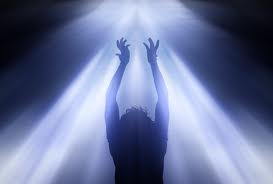 Indeed, dear brothers and sisters, as we saw last Wednesday, prayer is not linked to a specific context, but is written on the heart of every person and of every civilization. Of course, when we speak of prayer as an experience of the human being as such, of the homo orans, it is necessary to bear in mind that it is an inner attitude before being a series of practices and formulas, a manner of being in God’s presence before performing acts of worship or speaking words.
Indeed, dear brothers and sisters, as we saw last Wednesday, prayer is not linked to a specific context, but is written on the heart of every person and of every civilization. Of course, when we speak of prayer as an experience of the human being as such, of the homo orans, it is necessary to bear in mind that it is an inner attitude before being a series of practices and formulas, a manner of being in God’s presence before performing acts of worship or speaking words.
Prayer is centred and rooted in the inmost depths of the person; it is therefore not easily decipherable and, for the same reason, can be subject to misunderstanding and mystification. In this sense too we can understand the expression: prayer is difficult. In fact, prayer is the place par excellence of free giving, of striving for the Invisible, the Unexpected and the Ineffable. Therefore, the experience of prayer is a challenge to everyone, a “grace†to invoke, a gift of the One to whom we turn.
In prayer, in every period of history, man considers himself and his situation before God, from God and in relation to God, and experiences being a creature in need of help, incapable of obtaining on his own the fulfilment of his life and his hope. The philosopher Ludwig Wittgenstein mentioned that “prayer means feeling that the world’s meaning is outside the worldâ€.
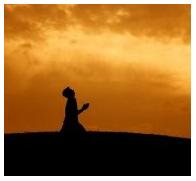 In the dynamic of this relationship with the one who gives meaning to existence, with God, prayer has one of its typical expressions in the gesture of kneeling. It is a gesture that has in itself a radical ambivalence. In fact, I can be forced to kneel — a condition of indigence and slavery — but I can also kneel spontaneously, declaring my limitations and therefore my being in need of Another. To him I declare I am weak, needy, “a sinnerâ€.
In the dynamic of this relationship with the one who gives meaning to existence, with God, prayer has one of its typical expressions in the gesture of kneeling. It is a gesture that has in itself a radical ambivalence. In fact, I can be forced to kneel — a condition of indigence and slavery — but I can also kneel spontaneously, declaring my limitations and therefore my being in need of Another. To him I declare I am weak, needy, “a sinnerâ€.
In the experience of prayer, the human creature expresses all his self-awareness, all that he succeeds in grasping of his own existence and, at the same time, he turns with his whole being to the One before whom he stands, directs his soul to that Mystery from which he expects the fulfilment of his deepest desires and help to overcome the neediness of his own life. In this turning to “Anotherâ€, in directing himself “beyond†lies the essence of prayer, as an experience of a reality that overcomes the tangible and the contingent.
Yet only in God who reveals himself does man’s seeking find complete fulfilment. The prayer that is openness and elevation of the heart to God, thus becomes a personal relationship with him. And even if man forgets his Creator, the living, true God does not cease to call man first to the mysterious encounter of prayer
As the Catechism says: “in prayer, the faithful God’s initiative of love always comes first; our own first step is always a response. As God gradually reveals himself and reveals man to himself, prayer appears as a reciprocal call, a covenant drama. Through words and actions, this drama engages the heart. It unfolds throughout the whole history of salvation†(n. 2567).
Dear brothers and sisters, we learn to stay more in front of God, God who has revealed himself in Jesus Christ, we learn to recognize in the silence, deep within ourselves, the voice that calls us and leads us to the depths of our existence , the source of life, the source of salvation for us to go beyond the limit of our lives and open ourselves to the extent of God, our relationship with Him who is Infinite Love. Thanks.
Dear brothers and sisters, let us learn to pause longer before God, who revealed himself in Jesus Christ, let us learn to recognize in silence, in our own hearts, his voice that calls us and leads us back to the depths of our existence, to the source of life, to the source of salvation, to enable us to go beyond the limitations of our life and to open ourselves to God’s dimension, to the relationship with him, which is Infinite Love. Many thanks.
Tags: catechism of the catholic church, catholic, catholic podcast, catholic prayer, cathollc spirituality, prayer
This entry was posted on Wednesday, May 11th, 2011 at 10:38 am
You can follow any responses to this entry through the RSS 2.0 feed.
Is Jesus Calling? A Spiritual Guide to Discerning Your Vocational Call with Fr. Paul Hoesing – episode 5: 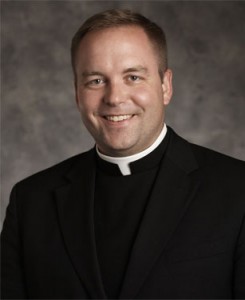 The Sixth Spiritual Lesson: Your fear is from the spirit against Christ. “God does not reveal himself through fear, pressure or confusion. Â This where the spirit against Christ reveals himself.”
The Sixth Spiritual Lesson: Your fear is from the spirit against Christ. “God does not reveal himself through fear, pressure or confusion. Â This where the spirit against Christ reveals himself.”
Questions: What are your ideas and images of god the Father and how do they differ from what Jesus teaches us about the Father?  Do you see the Father as someone who pressures you to do things?  Where does fear drive your relationship with the Father?  Recall your latest experience of peace, stillness, clarity and gratitude in God and believe that that is how the Father draws you?
[powerpress feed]
The Seventh Spiritual Lesson: God’s will is found in your will when you are in Christ. “God’s will, His desire for you, is not out there somwhere! Â It is found in your own desire when you are in Christ! Â That is the will of God for you!”
Questions: Does the thought of the priesthood come into your thoughts, feelings and desires when you are experiencing the peaceful presence of God?
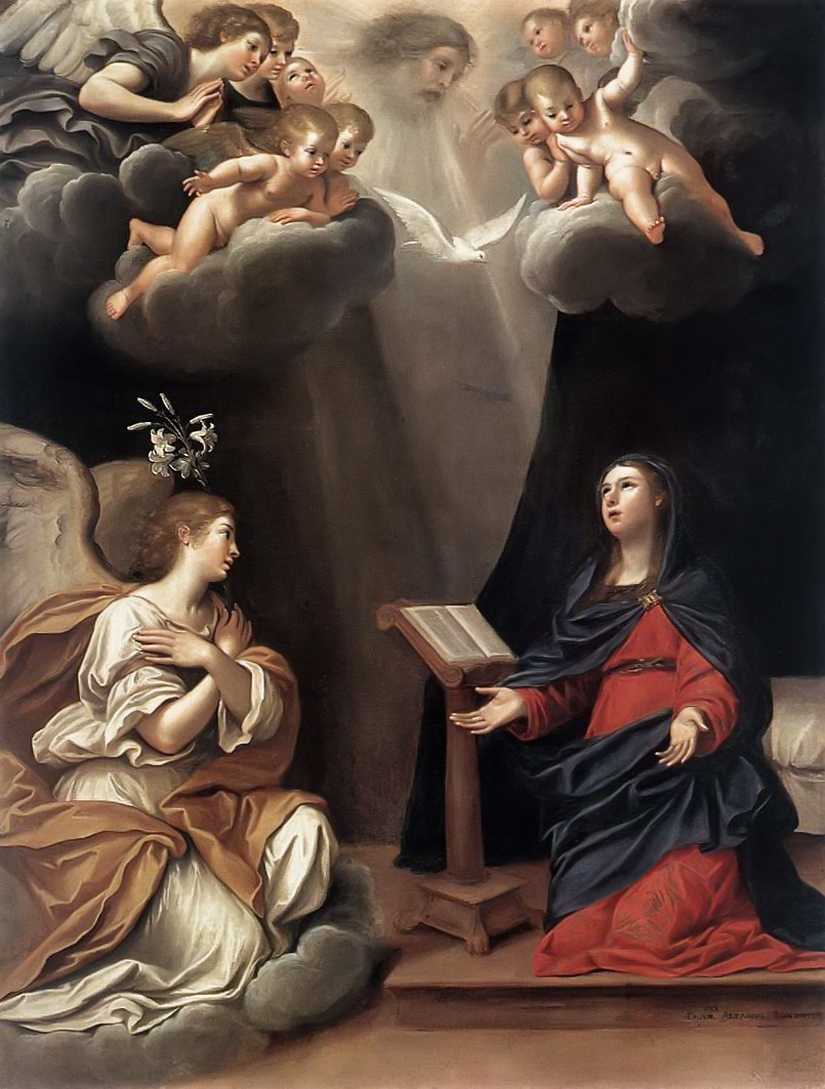 Based on “Is Jesus Calling You To Be A Catholic Priest: A helpful guide”, published by National Conference of Diocesan Vocation Director.
Based on “Is Jesus Calling You To Be A Catholic Priest: A helpful guide”, published by National Conference of Diocesan Vocation Director.
Fr. Paul Hoesing serves as the Vocation Director for the Archdiocese of Omaha, NE.
Check out “For Your Vocation.org“
Tags: archdiocese of omaha, catholic, catholic podcast, catholic prayer, catholic priest, cathollc spirituality, discernment, married life, Paul Hoesing, priesthood, religious life, spiritual guide, Spiritual Lesson, vocation director
This entry was posted on Monday, May 9th, 2011 at 2:49 pm
You can follow any responses to this entry through the RSS 2.0 feed.
Here is the This is the English translation of the extended remarks of the Holy Father, Â found on the Vatican website, from his audience on May 4 on
“The man in prayer”
Dear brothers and sisters,
Today I would like to begin a new series of Catecheses. After the series on the Fathers of the Church, on the great theologians of the Middle Ages and on great women, I would now like to choose a topic that is dear to all our hearts: it is the theme of prayer, and especially Christian prayer, the prayer, that is, which Jesus taught and which the Church continues to teach us. It is in fact in Jesus that man becomes able to approach God in the depth and intimacy of the relationship of fatherhood and sonship. Together with the first disciples, let us now turn with humble trust to the Teacher and ask him: “Lord, teach us to pray†(Lk 11:1).
In the upcoming Catechesis, in comparing Sacred Scripture, the great tradition of the Fathers of the Church, of the Teachers of spirituality and of the Liturgy, let us learn to live our relationship with the Lord, even more intensely as it were at a “school of prayerâ€.
Because we know that prayer can not be taken for granted: we must learn to pray, as if gaining back this art, even those who are very advanced in the spiritual life always feel the need to get to school to learn to Jesus pray with authenticity. We receive the first lesson from the Lord through His example. The Gospels describe Jesus in intimate and ongoing dialogue with the Father is a deep communion of the one who came into the world not to do his will, but the Father who sent him for the salvation of man.
In this first catechesis, as an introduction, I would like to propose some examples of prayer in ancient cultures, as noted, almost always and everywhere have turned to God
I shall start with ancient Egypt, as an example. Here a blind man, asking the divinity to restore his sight, testifies to something universally human. This is a pure and simple prayer of petition by someone who is suffering. This man prays: “My heart longs to see you…. You who made me see the darkness, create light for me, so that I may see you! Bend your beloved face over me†(A. Barucq — F. Daumas, Hymnes et prières de l’Egypte ancienne, Paris 1980). That I may see you; this is the essence of the prayer!
In the religions of Mesopotamia an arcane, paralyzing sense of guilt predominated, but which was not devoid of the hope of redemption and liberation on God’s part. We may thus appreciate this entreaty by a believer of those ancient cultures, formulated in these words: “O God who are indulgent even in the greatest sin, absolve me from my sin…. Look, O Lord at your tired servant and blow your breeze upon him: forgive him without delay. Alleviate your severe punishment. Freed from bonds, grant that I may breathe anew, break my chains, loosen the fetters that bind me†(M.-J. Seux, Hymnes et Prières aux Dieux de Babylone et d’Assyrie, Paris 1976). These are words that demonstrate how the human being, in his search for God, had intuited, if vaguely, on the one hand his own guilt and on the other, aspects of divine mercy and goodness.
In the pagan religion of ancient Greece, a very significant development may be seen: prayers, while still invoking divine help to obtain heavenly favours in every circumstance of daily life and to receive material benefits, gradually became orientated to more disinterested requests, which enabled the believer to deepen his or her relationship with God and to become a better person.
For example, the great philosopher Plato records a prayer of his teacher, Socrates, held to be one of the founders of Western thought. This was Socrates’ prayer: “Grant to me that I be made beautiful in my soul within, and that all external possessions be in harmony with my inner man. May I consider the wise man rich; and may I have such wealth as only the self-restrained man can bear or endure†(Plato, Phaedrus, English trans.: Loeb, Harold North Fowler). Rather than to possess plenty of money, he wanted above all to be beautiful within and wise.
In the Greek tragedies, sublime masterpieces of the literature of all time which still, after 25 centuries, are read, thought about and performed today, there is a content of prayer which expresses the desire to know God and to worship his majesty. One of these tragedies says: “O Earth’s Upbearer, thou whose throne is Earth, Who’er thou be, O past our finding out, Zeus, be thou Nature’s Law, or Mind of man, Thee I invoke; for, treading soundless paths, To Justice’ goal thou bringest all mortal things†(Euripedes, Trojan Women, 884-886, English trans.: Loeb, Arthur S. Way). God remains somewhat nebulous, nevertheless man knows this unknown god and prays to the one who guides the ways of the world.
Also among the Romans who made up that great Empire in which Christianity first came into being and spread, prayer, even if it is associated with a utilitarian conception and fundamentally associated with the request for divine protection of the life of the civil community, sometimes begins with invocations that are wonderful for the fervour of personal devotion that is transformed into praise and thanksgiving. In the second century A.D., Apuleius, an author of Roman Africa, attested to this. In his writings he expresses his contemporaries’ dissatisfaction with the traditional religion and the desire for a more authentic relationship with God. In his masterpiece, entitled Metamorphoses, a believer addresses these words to a goddess: “You are holy, you are in every epoch a saviour of the human species, you, in your generosity, always help mortals, offer to the wretch in travail the tender affection
of a mother. Neither a day nor a night nor even a second pass without you filling it with your benefits†(Apuleius of Madaura, Metamorphoses ix, 25).
In the same period the Emperor Marcus Aurelius — who was also a philosopher who reflected on the human condition — affirmed the need to pray in order to establish a fruitful cooperation between divine action and human action. He wrote in his Meditations: “Who told you that the gods do not help us also in what depends on us? So begin to pray to them and you will see†(Dictionnaire de Spiritualité xii/2, col. 2213).
This advice of the Emperor philosopher was effectively put into practice by innumerable generations prior to Christ, thereby demonstrating that human life without prayer, which opens our existence to the mystery God, lacks sense and direction.
Always expressed in every prayer, in fact, is the truth of the human creature who on the one hand experiences weakness and impoverishment, who therefore addresses his supplication to Heaven, and on the other is endowed with an extraordinary dignity, so that, in preparing to receive the divine Revelation, finds himself able to enter into communion with God.
Dear friends, in these examples of prayer of different epochs and civilizations emerge the human being’s awareness of his creatural condition and of his dependence on Another superior to him and the source of every good. The human being of all times prays because he cannot fail to wonder about the meaning of his life, which remains obscure and discomforting of it is not put in relations to the mystery of God and if his plan for the world.
Human life is a fabric woven of good and of evil, of undeserved suffering and of joy and beauty that spontaneously and irresistibly impel us to ask God for that light and that inner strength which support us on earth and reveal a hope beyond the boundaries of death.
The pagan religions remain an invocation which from the earth awaits a word from Heaven. One of the last great pagan philosophers, who lived fully in the Christian era, Proclus of Constantinople, gives a voice to this expectation, saying: “unknowable, no one contains you. All that we think belongs to you. Our evils and our good come from you, on you our every yearning depends, O Ineffable One, whom our souls feel present, raising to you a hymn of silence†(Hymni, ed. Vogt, Wiesbaden 1957, in Preghiere dell’umanità , op. cit., p. 61).
In the examples of prayer of the various cultures which we have considered, we can see a testimony of the religious dimension and of the desire for God engraved on the heart of every human being, which receives fulfilment and full expression in the Old and in the New Testament. The Revelation, is in fact purifying and brings to its fullness man’s original yearning for God, offering to him, in prayer, the possibility of a deeper relationship with the heavenly Father.
At the beginning of our journey in the “school of prayer†let us now ask the Lord to illumine our minds and hearts so that the relationship with him in prayer may be ever more intense, affectionate and constant. Once again, let us say to him: “Lord, teach us to pray†(Lk 11:1).
Tags: catholic, catholic podcast, catholic prayer, cathollc spirituality, christian prayer
This entry was posted on Wednesday, May 4th, 2011 at 2:33 pm
You can follow any responses to this entry through the RSS 2.0 feed.
Episode 5 -Stations of the Cross: Reflections with Deacon James Keating –
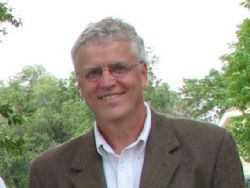 The Stations of the Cross – one of the most powerful devotionals alive in the heart of the Church. Reflecting and deeply meditating on the Passion of the Christ, Deacon Keating guides us through the 12th station (Jesus dies on the Cross), the 13th station (Jesus taken down from the Cross and laid in the arms of His mother), and the 14th station (Jesus is placed in the tomb) along the Way of the Cross.
The Stations of the Cross – one of the most powerful devotionals alive in the heart of the Church. Reflecting and deeply meditating on the Passion of the Christ, Deacon Keating guides us through the 12th station (Jesus dies on the Cross), the 13th station (Jesus taken down from the Cross and laid in the arms of His mother), and the 14th station (Jesus is placed in the tomb) along the Way of the Cross.
Deacon James Keating, PhD, the director of Theological Formation for the Institute for Priestly Formation, located at Creighton University, in Omaha, is making available to â€Discerning Hearts†and all who listen, his series of programs entitled “Stations of the Cross: Reflections with Deacon James Keatingâ€.
For more information on the “Institute of Priestly Formation†and for other material available by Deacon Keating, just click here
Don’t forget to pickup a copy of “Communion with Christ†,it is one of the best audio sets on prayer…ever!
Check out Deacon Keating’s “Discerning Heart†page
Tags: catholic, catholic podcast, catholic prayer, cathollc spirituality, creighton university, Deacon James Keating, Deacon Keating, institute for priestly formation, james keating, jesus dies on the cross, passion of the christ, stations of the cross
This entry was posted on Thursday, April 21st, 2011 at 8:23 am
You can follow any responses to this entry through the RSS 2.0 feed.
“The Fulfillment of All Desire: A Guidebook for the Journey to God based on the Wisdom of the Saints” is one of my all time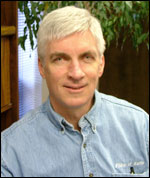 favorite books…period! What Ralph Martin accomplishes is extraordinary. He synthesizes the teachings of the great mystical doctors of the Church (St. Augustine, St. Francis De Sales, St. Catherine of Siena, St. Bernard of Clairvaux, St. Teresa of Avila, St. John of the Cross, St. Therese of Lisieux, with Blessed John Paul II as an “instructor”) and leads on the path towards heaven. And the great thing is that it begins today, now…holiness is a universal calling for all of us. If there was one book I would recommend to have, besides the Bible of course, it is this one first and foremost! Be sure to visit the Renewal Ministries website.
favorite books…period! What Ralph Martin accomplishes is extraordinary. He synthesizes the teachings of the great mystical doctors of the Church (St. Augustine, St. Francis De Sales, St. Catherine of Siena, St. Bernard of Clairvaux, St. Teresa of Avila, St. John of the Cross, St. Therese of Lisieux, with Blessed John Paul II as an “instructor”) and leads on the path towards heaven. And the great thing is that it begins today, now…holiness is a universal calling for all of us. If there was one book I would recommend to have, besides the Bible of course, it is this one first and foremost! Be sure to visit the Renewal Ministries website.
[powerpress]
Tags: catholic, catholic podcast, catholic prayer, cathollc spirituality, doctors of the church, Francis De Sales, ralph martin
This entry was posted on Thursday, April 14th, 2011 at 2:22 pm
You can follow any responses to this entry through the RSS 2.0 feed.
VATICAN CITY, 13 APR 2011 (VIS) – During this Wednesday’s general audiences, Benedict XVI concluded the cycle of catechesis he has dedicated over the course of two years to the many saints who “with their faith, with their charity and with their lives, have been beacons for many generations, and are thus also for us”.
“Often we are led to believe that sainthood is reserved to a few chosen ones”, the Pope said. Nonetheless, “saintliness, the fullness of Christian life, does not consist in the achievement of extraordinary feats, but in uniting oneself with Christ… in making His disposition … His behaviour … our own. … The II Vatican Council, in the Constitution of the Church, speaks clearly of the universal call to sainthood, affirming that no-one is excluded”.
However, a holy life, the Pope continued, “is not principally the result of our efforts, as it is God … who renders us holy, and it is the action of his Spirit which animates us from within, the same life of Christ resurrected which is communicated to us and which transforms us … Saintliness is therefore ultimately rooted in baptismal grace, in being introduced to the paschal mystery of Christ, by which His Spirit, His resurrected life, is communicated to us. … But God always respects our freedom and asks us to accept this gift and to live with the demands it brings, asks that we may allow ourselves to be transformed by the action of the Holy Spirit, conforming our will to the will of God”.
“How can it be that our way of thinking and our actions become the thought and action of Christ?” 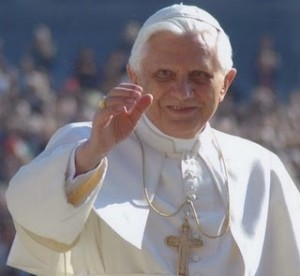 asked the Pope. “Once again, the II Vatican Council offers us clear guidance; it tells us that Christian holiness is none other than charity, fully experienced”. However, in order that charity might, “like a good seed, grow in the soul and there bear fruit, the faithful must listen gladly to the Word of God and, by its grace, carry out His will through their works, participate frequently in the sacraments, above all the Eucharist and the Holy Liturgy; they must constantly apply themselves in prayer, in the abnegation of their selves, in the active service of their brothers and in the exercise of every virtue. … For this reason the true disciple of Christ is characterised by his charity both toward God and toward his neighbour”.
asked the Pope. “Once again, the II Vatican Council offers us clear guidance; it tells us that Christian holiness is none other than charity, fully experienced”. However, in order that charity might, “like a good seed, grow in the soul and there bear fruit, the faithful must listen gladly to the Word of God and, by its grace, carry out His will through their works, participate frequently in the sacraments, above all the Eucharist and the Holy Liturgy; they must constantly apply themselves in prayer, in the abnegation of their selves, in the active service of their brothers and in the exercise of every virtue. … For this reason the true disciple of Christ is characterised by his charity both toward God and toward his neighbour”.
“The Church, during the Liturgical Year, invites us to commemorate an array of saints who have fully lived in charity, and have loved and followed Christ in their everyday lives. They show us that it is possible to follow this path. … We are all called to saintliness: it is the very measure of Christian life”.
Benedict XVI concluded by inviting us all to open ourselves “to the action of the Holy Spirit, which transforms our life, so that we too may become tesserae in the great mosaic of sainthood that God creates throughout history”.
Tags: benedict xvi, catholic, catholic podcast, catholic prayer, cathollc spirituality, christian holiness, paschal mystery of christ
This entry was posted on Wednesday, April 13th, 2011 at 10:54 pm
You can follow any responses to this entry through the RSS 2.0 feed.
Is Jesus Calling? A Spiritual Guide to Discerning Your Vocational Call with Fr. Paul Hoesing – episode 4:  The Fourth Spiritual Lesson: It Takes Time. “The Father simply wants you to trust him enough to take the next step, not the 10th or 20th step. He wants you to focus on going from A to B, not on going from A to Z. When you take that step, Jesus will reveal the next one.”
The Fourth Spiritual Lesson: It Takes Time. “The Father simply wants you to trust him enough to take the next step, not the 10th or 20th step. He wants you to focus on going from A to B, not on going from A to Z. When you take that step, Jesus will reveal the next one.”
Questions: What is the next step God is asking of you? Are you afraid to take it? If you are, ask him into the situation or reality that causes you fear. Are you focusing too far down the road?
[powerpress feed]
The Fifth Spiritual Lesson: Your Peace is Found in Jesus. “Christ’s presence is enjoyable; it gives us peace, stillness, clarity and gratitude. Our job is to desire it.”
Questions: Where do you experience peace, stillness, clarity or gratitude in God? Wherever that is happening in your life, you need to do two things: (1) realize that this is the presence of Christ and ; (2) desire it throughout your day…above all thins. Relish his presence, enjoy his presence, long fro his presence, keep coming back to his presence, adore his presence and express gratitude for his presence.
Based on “Is Jesus Calling You To Be A Catholic Priest: A helpful guide”, published by National Conference of Diocesan Vocation Director.
Fr. Paul Hoesing serves as the Vocation Director for the Archdiocese of Omaha, NE.
Check out “For Your Vocation.org”
Tags: archdiocese of omaha, catholic, catholic podcast, catholic prayer, catholic priest, cathollc spirituality, discernment, married life, Paul Hoesing, religious life, spiritual guide, Spiritual Lesson, vocation director
This entry was posted on Monday, April 4th, 2011 at 11:34 am
You can follow any responses to this entry through the RSS 2.0 feed.
Is Jesus Calling? A Spiritual Guide to Discerning Your Vocation  with Fr. Paul Hoesing – episode 3:  The Third Spiritual Lesson: Trust God. “When the thought of your vocation comes into your mind and heart, if you keep it to yourself in your mind, dwelling on it over and over trying to figure it out or trying to control it or trying to get rid of it, then you will be choosing not to trust.”
The Third Spiritual Lesson: Trust God. “When the thought of your vocation comes into your mind and heart, if you keep it to yourself in your mind, dwelling on it over and over trying to figure it out or trying to control it or trying to get rid of it, then you will be choosing not to trust.”
Questions: Where are the particular classrooms in the general school of dependence where you are being invited to trust in God? What are the storms in your life that make your mind race causing confusion in you? Jesus wants do to something for you there. Focus him. Bring it to him. Desire his love in it.
[powerpress]
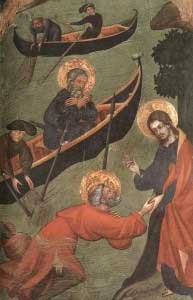 Based on “Is Jesus Calling You To Be A Catholic Priest: A helpful guide”, published by National Conference of Diocesan Vocation Director.
Based on “Is Jesus Calling You To Be A Catholic Priest: A helpful guide”, published by National Conference of Diocesan Vocation Director.
Fr. Paul Hoesing serves as the Vocation Director for the Archdiocese of Omaha, NE.
Check out “For Your Vocation.org”
Tags: archdiocese of omaha, catholic, catholic podcast, catholic prayer, cathollc spirituality, Discerning, discernment, heart, love, married life, NE, Paul Hoesing, religious life, spiritual guide, Spiritual Lesson, vocation director
This entry was posted on Tuesday, March 29th, 2011 at 12:33 am
You can follow any responses to this entry through the RSS 2.0 feed.
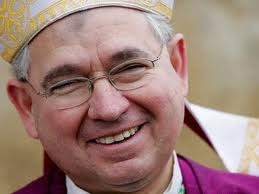 Archbishop Jose Gomez, now the Archbishop of Los Angeles, in 2007 took some time out of his busy day to talk with Bruce and I about his pastoral letter “The Tender Mercy of God” which at the time he addressed to his people of San Antonio.
Archbishop Jose Gomez, now the Archbishop of Los Angeles, in 2007 took some time out of his busy day to talk with Bruce and I about his pastoral letter “The Tender Mercy of God” which at the time he addressed to his people of San Antonio.
[powerpress]
Our friend, David Scott, brought the letter to our attention and encouraged us to speak with his Excellency about it. To our wonderful surprise, Archbishop Gomez agreed and was more than generous with his time and insights. Don’t miss out on this wonderful teaching from one of our most gifted shepherds. It really kicks in by page 3.
[gview file=”http://abpgomez.la-archdiocese.org/docs/PASTORAL_LTR/2007-0221_Pastoral_Letter_SA.pdf”]
Tags: archbishop gomez, catholic, catholic podcast, catholic prayer, cathollc spirituality, jose gomez, mercy of god, pastoral letter
This entry was posted on Sunday, March 27th, 2011 at 11:56 am
You can follow any responses to this entry through the RSS 2.0 feed.
Is Jesus Calling? A Spiritual Guide to Discerning Your Vocational Call with Fr. Paul Hoesing – episode 2:  The First Spiritual Lesson: You Must Follow Christ. “Discovering one’s vocation is not a navel-gazing, self-focused, psychological exercise.  It’s not about a man figuring something out. It is not about solving a confusing puzzle.”
The First Spiritual Lesson: You Must Follow Christ. “Discovering one’s vocation is not a navel-gazing, self-focused, psychological exercise.  It’s not about a man figuring something out. It is not about solving a confusing puzzle.”
Questions: Where have you encountered Christ? Where do you experience his loving presence now for you?  Where do you feel consciously blessed and grateful for what God has done for you?
[powerpress feed]
The Second Spiritual Lesson: Learn to desire what God desires for you. “All you need is to desire whatever God may desire for you. Remaining true to this desire opens your heart to receive what God wants for you. Then, God Himself will take care of you.â€
Questions: Do you trust that God always wants what is best for you? Where do you begin to become afraid of giving God permission to lead you? When do you begin to try to manipulate God to want what you think will make you happy? When that happens, simply say over and over again inside of yourself to the Father, ‘Father, I give you permission to lead me!’ Or ‘Father, I desire your goodness to me.’ Or, ‘Father, I trust you’â€
Based on “Is Jesus Calling You To Be A Catholic Priest: A helpful guide”, published by Nati onal Conference of Diocesan Vocation Director.
Fr. Paul Hoesing serves as the Vocation Director for the Archdiocese of Omaha, NE.
Check out “For Your Vocation.org”
Tags: archdiocese of omaha, catholic, catholic podcast, catholic prayer, catholic priest, cathollc spirituality, discernment, heart, married life, NE, Paul Hoesing, religious life, spiritual guide, vocation director
This entry was posted on Monday, March 21st, 2011 at 12:57 am
You can follow any responses to this entry through the RSS 2.0 feed.
The Discernment of Spirits with Fr. Timothy Gallagher – Serves as an introduction to the Spiritual Exercises of St. Igantius of Loyola
Episode 16 – The Fourteenth Rule: 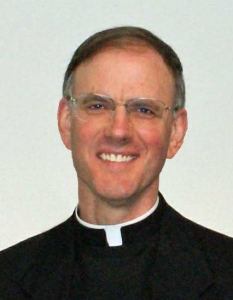
Likewise, he behaves as a chief bent on conquering and robbing what he desires: for, as a captain and chief of the army, pitching his camp, and looking at the forces or defenses of a stronghold, attacks it on the weakest side, in like manner the enemy of human nature, roaming about, looks in turn at all our virtues, theological, cardinal and moral; and where he finds us weakest and most in need for our eternal salvation, there he attacks us and aims at taking us.
[powerpress]
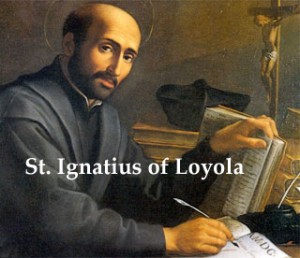 The Discernment of Spirits: Setting the Captives Free – Serves as an introduction to the Spiritual Exercises of St. Ignatius of Loyola
The Discernment of Spirits: Setting the Captives Free – Serves as an introduction to the Spiritual Exercises of St. Ignatius of Loyola
The 14 Rules for Discerning Spirits –
“The Different Movements Which Are Caused In The Soul”
as outlined by St. Ignatius of Loyola can be found here
Father Timothy M. Gallagher, O.M.V., was ordained in 1979 as a member of the Oblates of the Virgin Mary, a religious community dedicated to retreats and spiritual formation according to the Spiritual Exercises of St. Ignatius. Â Fr. Gallagher is featured on the EWTN series “Living the Discerning Life: Â The Spiritual Teachings of St. Ignatius of Loyola”.Â
For more information on how to obtain copies of Fr. Gallaghers’s various books and audio which are available for purchase, please visit  his  website: www.frtimothygallagher.org
 For the other episodes in this series visit
Fr. Timothy Gallagher’s “Discerning Hearts†page
Tags: catholic, catholic podcast, catholic prayer, cathollc spirituality, discernment of spirits, Timothy Gallagher
This entry was posted on Thursday, March 17th, 2011 at 8:26 am
You can follow any responses to this entry through the RSS 2.0 feed.
Is Jesus Calling? A Spiritual Guide to Discerning Your Vocational Call with Fr. Paul Hoesing – episode 1:  Introduction – Whether it’s to the priesthood, religious life, married life…discerning what our vocation is can be a challenge, but it doesn’t have to be. Fr. Hoesing discusses what discernment is, what the process is like, and what can help guide us along the way.
Introduction – Whether it’s to the priesthood, religious life, married life…discerning what our vocation is can be a challenge, but it doesn’t have to be. Fr. Hoesing discusses what discernment is, what the process is like, and what can help guide us along the way.
[powerpress]
Based on “Is Jesus C alling You To Be A Catholic Priest: A helpful guide”, published by Nati onal Conference of Diocesan Vocation Director.
Fr. Paul Hoesing serves as the Vocation Director for the Archdiocese of Omaha, NE.
Check out “For Your Vocation.org”
Tags: archdiocese of omaha, catholic, catholic podcast, catholic prayer, catholic priest, cathollc spirituality, discernment, Fr, Introduction Whether, married life, NE, Paul Hoesing, religious life, spiritual guide, vocation director, vocation discernment
This entry was posted on Monday, March 14th, 2011 at 12:39 am
You can follow any responses to this entry through the RSS 2.0 feed.
 This video is quite lovely…just remember the greatest temptations come when you’re at the end of your desert experience…hang in there, you’re almost done!
This video is quite lovely…just remember the greatest temptations come when you’re at the end of your desert experience…hang in there, you’re almost done!
Tags: British illustrator Simon Smith, catholic, catholic podcast, catholic prayer, cathollc spirituality, desert expereince, jesus in the desert, temptation in the desert, temptations
This entry was posted on Sunday, March 13th, 2011 at 1:35 pm
You can follow any responses to this entry through the RSS 2.0 feed.
And I love our Holy Father too!
Tags: catholic, catholic podcast, catholic prayer, cathollc spirituality, jesus of nazareth, pope benedict xvi
This entry was posted on Thursday, March 10th, 2011 at 4:40 pm
You can follow any responses to this entry through the RSS 2.0 feed.
Episode 16 -The Way of Mystery: The Eucharist and Moral Living – The internal world and external presence of God. The importance of silence and recognizing the day of our visitations. Experiencing the love of God internally. We live by faith…moving to living by love.
– The internal world and external presence of God. The importance of silence and recognizing the day of our visitations. Experiencing the love of God internally. We live by faith…moving to living by love.
[powerpress]
Deacon James Keating, PhD, the director of Theological Formation for the Institute for Priestly Formation, located at Creighton University, in Omaha, is making available to â€Discerning Hearts†and all who listen, his series of programs entitled “The Way of Mysteryâ€.
 The Vatican II documents remind us that the spiritual journey is not made in a vacuum, that God has chosen to save us, not individually, but as The People of God. The Eucharist must help Christians to make their choices by discerning out of Christ’s paschal mystery. For this process to take place, however, Christians must first understand how the Eucharist puts them in touch with Christ’s passion, death, and resurrection, and what concrete implications being in touch with this mystery has for their daily lives.
The Vatican II documents remind us that the spiritual journey is not made in a vacuum, that God has chosen to save us, not individually, but as The People of God. The Eucharist must help Christians to make their choices by discerning out of Christ’s paschal mystery. For this process to take place, however, Christians must first understand how the Eucharist puts them in touch with Christ’s passion, death, and resurrection, and what concrete implications being in touch with this mystery has for their daily lives.
For more information on the “Institute of Priestly Formation†and for other material available by Deacon Keating, just click here
Don’t forget to pickup a copy of “Communion with Christ†, it is one of the best audio sets on prayer…ever!
Check out Deacon Keating’s “Discerning Heart†page
Tags: catholic, catholic podcast, catholic prayer, cathollc spirituality, creighton university, Deacon James Keating, institute for priestly formation, james keating, paschal mystery, spiritual journey, the eucharist, theological formation, way of mystery
This entry was posted on Thursday, March 10th, 2011 at 9:35 am
You can follow any responses to this entry through the RSS 2.0 feed.

